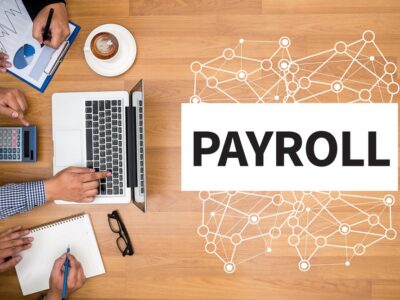
1. Keeping Track of Your Finances
The Importance of Financial Organization
Keeping track of your finances is a crucial aspect of personal financial management. Without proper organization, it becomes challenging to understand where your money is going, how much you are spending, and whether you are staying within your budget. This lack of awareness can lead to financial stress, debt, and missed opportunities to save and invest.
One of the key ways to maintain financial organization is by using a personal check register. This simple but effective tool allows you to record all your financial transactions, including income, expenses, and withdrawals, in one central place. By consistently updating your check register, you gain a clear picture of your financial situation and can make informed decisions about your money.
The Benefits of Using a Personal Check Register
Features and benefits of personal check registers are numerous for managing your finances. Firstly, it helps you keep track of every transaction, ensuring that you have an accurate record of your income and expenses. This record becomes invaluable when preparing your taxes, applying for loans, or disputing any discrepancies with your bank or credit card company.
Additionally, a check register allows you to monitor your spending habits and identify areas where you can cut back and save money. By categorizing your expenses, such as groceries, utilities, entertainment, and transportation, you can easily see where your money is going and identify any patterns or trends in your spending behavior. This awareness empowers you to make adjustments to your budget and financial goals.
How a Check Register Can Help You Budget
Budgeting is a fundamental part of financial management, and a personal check register can be an invaluable tool in creating and maintaining a budget. By tracking your income and expenses in detail, you can accurately determine how much money you have available for different categories, such as housing, food, and entertainment.
When setting up a budget, you can refer to your check register to identify any unnecessary or excessive spending. By analyzing your expenses over a period of time, you can identify areas where you may be overspending and set realistic goals for reducing those expenses. This process allows you to allocate your money more effectively and work towards your financial objectives, whether it’s saving for a down payment on a house, paying off debt, or investing for retirement.
2. Discovering the Features of a Personal Check Register
The Basics of a Check Register
A personal check register is a simple ledger or log that allows you to record all your financial transactions. Typically, it consists of several columns, including the date, transaction description, income or expense, and a running balance. You can choose to use a physical check register booklet that comes with your checkbook or opt for electronic versions available on personal finance software or online banking platforms.
Each time you receive income or make a payment, you record the relevant details in your check register. This ensures that you have a real-time overview of your financial transactions and can reconcile your records with your bank statements or credit card statements.
How to Set Up Your Check Register
Setting up your personal check register is a straightforward process. Begin by recording your opening balance, which is the amount of money you have in your bank account at the start. You can find this information from your bank statement or online banking portal. Write down the opening balance in the appropriate column of your check register.
As you make deposits or withdrawals from your account, record them chronologically in the register. Be sure to include relevant details such as the date, a brief description of the transaction, and the amount. If it’s an income, note whether it’s a paycheck, a side gig, or any other source of income. If it’s an expense, categorize it to provide clarity on where your money is going.
The Different Sections of a Check Register
A personal check register typically contains different sections to help organize and categorize your financial transactions. These sections may include income, expenses, withdrawals, transfers, and balance. By dividing your register into these categories, you can easily analyze your financial activities and gain insights into your spending and saving habits.
The income section of your check register is where you record all the money coming into your account. This includes paychecks, dividends, interest earned, and any other sources of income. By accurately tracking your income, you can evaluate your earning potential and identify opportunities for growth or additional income streams.
The expense section is where you record all your outgoing expenses. This includes bills, groceries, entertainment expenses, loan payments, and any other payments you make. By categorizing your expenses, you can analyze your spending patterns and identify areas where you can cut back or make adjustments to improve your financial position.
3. Unveiling the Hidden Benefits of Personal Check Registers
Tracking Spending Habits for Better Financial Awareness
One of the significant benefits of using a personal check register is the ability to track your spending habits in detail. By recording all your expenses, you gain insights into your financial behavior, good and bad. This awareness is crucial for making informed decisions about your money and identifying areas where you can save or invest more effectively.
With a personal check register, you can identify patterns or trends in your spending that may not be apparent without accurate record-keeping. Are you spending too much money on dining out or impulse purchases? Are your utility bills consistently higher than expected? By reviewing your check register regularly, you can make adjustments to your spending habits to align with your financial goals and priorities.
Preventing Overdrafts and Avoiding Late Fees
Another hidden benefit of using a personal check register is the prevention of overdrafts and avoiding late fees. By updating your check register with every transaction, you always have an accurate record of your available balance. This allows you to make informed decisions about your spending and ensures that you don’t accidentally exceed your account balance.
Late fees can quickly add up and significantly impact your financial well-being. By using a personal check register to stay on top of due dates for bills, credit card payments, and other financial obligations, you can avoid late fees and maintain a positive credit history. The ability to track due dates and payment amounts in your check register contributes to better financial management and peace of mind.
The Security Enhancement Provided by Check Registers
In today’s digital age, security is a major concern for managing personal finances. Online banking and payment systems have made transactions more convenient but also exposed individuals to potential risks. Using a personal check register provides an additional layer of security by keeping your financial records offline.
By relying on a physical check register, you reduce the risk of your financial information being compromised through online vulnerabilities or cyberattacks. This can be especially helpful if you prefer a more tangible method of record-keeping or want to ensure that your financial data remains confidential and secure.
4. Exploring Advanced Techniques with Personal Check Registers
Using Check Registers for Personal Financial Analysis
While a personal check register is primarily a tool for keeping track of your transactions, it can also be used for more advanced financial analysis. By reviewing your check register, you can identify trends, patterns, and anomalies in your financial behavior. This can provide valuable insights into your income, expenses, and overall financial health.
For example, you might notice a sudden increase in your income due to a side project or investment. This can inspire you to explore similar opportunities or allocate more resources to enhance your overall financial well-being. Similarly, identifying excessive or unnecessary expenses can prompt you to make changes to improve your saving and investing habits.
Utilizing Check Registers to Determine Cash Flow
Cash flow management is crucial for maintaining financial stability and achieving your financial goals. By thoroughly updating your check register, you can determine your cash flow, which is the net amount of cash moving in and out of your bank account within a specific period.
Analyzing your cash flow allows you to evaluate your income against your expenses and identify whether you have a positive or negative balance. This information is essential for making strategic decisions such as adjusting your spending, increasing your income, or tapping into your savings to cover any shortfall.
Incorporating Check Registers into Financial Goal Setting
Goal setting is an integral part of personal financial management, and using a personal check register can greatly enhance your ability to achieve your financial goals. By having a clear record of your income, expenses, and savings, you can assess your current financial situation and set realistic and achievable goals.
Your check register can serve as a guide and reference point as you work towards your goals. Whether you’re saving for a down payment on a house, planning for a dream vacation, or setting money aside for retirement, your check register can provide insights into how your money is moving and whether you are on track to meet your objectives.
By utilizing a personal check register, you can take control of your finances and unlock the hidden gems it offers for financial success. From keeping track of your finances and budgeting effectively to gaining insights into your spending habits and enhancing your financial security, a check register is a powerful tool in your financial arsenal. So why wait? Start using a personal check register today and embark on a journey towards financial freedom and prosperity.
FAQ
Question: What is a personal check register? – A personal check register is a tool used to record and track all financial transactions, including income, expenses, and withdrawals. It helps individuals maintain financial organization and gain a clear picture of their financial situation.
Question: What are the benefits of using a personal check register? – Using a personal check register offers several benefits, including accurate record-keeping, monitoring spending habits, effective budgeting, preventing overdrafts and late fees, and providing additional security for financial information.
Question: How do I set up a personal check register? – To set up a personal check register, begin by recording your opening balance, which is the amount of money you have in your bank account at the start. As you make deposits or withdrawals, record the date, transaction description, and amount in the appropriate columns of your check register.
Question: What are the different sections of a check register? – A personal check register typically contains sections for income, expenses, withdrawals, transfers, and balance. These sections help organize and categorize financial transactions, allowing for easy analysis of spending and saving habits.
Question: How can a personal check register help with budgeting? – A personal check register helps with budgeting by tracking income and expenses in detail. By analyzing expenses over time, individuals can identify areas of overspending and set realistic goals for reducing those expenses.
Question: What are some advanced techniques with personal check registers? – Advanced techniques with personal check registers include financial analysis, determining cash flow, and incorporating the register into financial goal setting. These techniques provide insights into income, expenses, and overall financial health.
Question: How can a personal check register help in financial analysis? – By reviewing a personal check register, individuals can identify patterns, trends, and anomalies in their financial behavior. This analysis can provide valuable insights into income, expenses, and overall financial health, prompting changes to improve saving and investing habits.
Question: How can a personal check register be utilized in goal setting? – A personal check register can be used as a guide and reference point in financial goal setting. By assessing income, expenses, and savings recorded in the register, individuals can establish realistic and achievable goals and track progress towards them.
Useful Resources:
- Investopedia: Financial Education and Information
- Khan Academy: Personal Finance Learning Resources
- Bankrate: Personal Finance Advice and Calculators
- Nolo: Legal Information and Resources for Personal Finances
- NerdWallet: Personal Finance Tips and Tools
- Feed the Pig: Financial Education and Budgeting Resources
- Smart About Money: Financial Education and Tools
- Mint: Personal Finance App and Budgeting Tools






